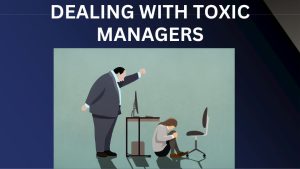The Insider Guide to Careers
Insider information, secrets and tips about getting hired and building careers. For employees and job candidates.
Innumerable people I have worked with have fantastic pedigrees from the best academic institutions. More than half of them are stuck in lower or mid-management roles in companies. Why would that be so?
Companies are nothing like the predictable academic environment in which we participate. In a university, you are the customer, and the professors serve you. Since you are paying for your degree, you are treated well. No university wants to displease its customers. The more one is willing to pay, the more they are treated royally. Ivy League institutions are notorious for grade inflation and molly-coddling students. All these stop when you enter a company. Inside a company, you are serving the client and no longer a client as you were before. You are being paid for every hour of effort you put it. There is a minimum expectation from the employer to ensure that one satisfies the job’s basic requirements. If you do not meet the expectations, the company can always replace you with anyone from the labour market. There is no longer a need to closely handhold or spoon-feed you, as you may have experienced in university as a paying client. Hence, there is an expectation to shape up or ship out. In a company, you are only a day away from disaster. The manager you love may exit instantly, and a new manager you hate may manage you before you know it.
Secondly, the university model is structured like a predictable video game, with lectures, recitals, assignments and exams. Once you finish the tasks, a guaranteed reward awaits you. Your final grade is a neat weighted average of all individual grades. However, working life is nothing like this. Projects change every couple of months, managers come and go, leadership changes happen all the time and business cycles can swing wildly in one way or the other. There is a lot of unpredictability about the macro environment. The team environment is also highly variable. Team members always resign, there is a stream of newcomers to replace the members who left, and your work demands oscillate constantly. You will never know if you will continue to have a job after a couple of months. Each company and team is only a bad quarterly report away from laying off many people. Finally, you also need to impress your manager all the time. All managers are only human and often make mistakes that hurt you badly. For example, suppose you have done good work for the entire year and messed up in the last project before your performance evaluation. In that case, the manager will sadly focus too much on your failure and minimise all previous wins. This bias is called the recency effect in psychology. If you mess up one project, you get a warning. If you mess two, you are on your way to a PIP. If you mess up the third project (including the PIP), you are out of the company.
Ideally, companies should focus more on training and guiding employees, with a much higher tolerance for failure. For example, in NVidia, employees are rarely fired. The managers will give you harsh feedback but not fire you. The employee leaves when they want to leave. The CEO, Jensen Huang, mentioned that it is silly to hire people with so much care and then let them go suddenly. Most managers do not think like this. They are happy to get a new cog to do the work. There are so many capable people in the open market that letting employees go seems easy.
Thirdly, universities focus on teaching tech skills. They rarely teach business or people skills required to do well in the workplace. To do well at work, one must learn all three skills and combine them with dedication, loyalty, humility and perseverance. Success is difficult; failure is easy. Many folks I met focused too much on technical skills and little on speaking, presentation and team skills. Ultimately, all employees want to be with people who communicate well and exude optimism. The employees who think their Ivy League and PhD degrees alone will help them are sadly mistaken. One has to take time to pick up new skills and get better every day. Education does not end with a PhD degree; it only begins from there. Being toppers in school and university is no guarantee for workplace success.
The average grade of a millionaire is 2.9/4. One good reason is that to be rich, one also needs to take a lot of risks in identifying the right opportunities in life. People high in academic grades are precisely of the opposite calibre; attending a predictably prestigious school, doing all their homework on time, and taking almost no risk help them gain success in a college setting. Real life has no script. Anything, I repeat, anything, can happen if you persevere and wait for the lucky break.
Understand that the workplace is a crazy game played by its own rules. Learn the rules quickly and develop strategies to identify what you want to optimise and how you would do it. When you play a new video game, whether or not you succeeded in previous games does not correlate with your current success in the new game. You may face unexpected setbacks in the beginning as you learn the rules. Do not look back. Grin and move on. A note of caution, though. As you master the corporate game and get comfortable with pay increases and promotions, remember this obvious adage: there is only one CEO, only one person at the top. Not everyone gets to the top, meaning excellent people fall by the wayside. Careers coming to an abrupt end has happened in the past and will continue to do so in the future. You will have a lot of fun if you are prepared for every outcome and have a game plan for every stage.
My next article will cover why this fun cannot last forever.



